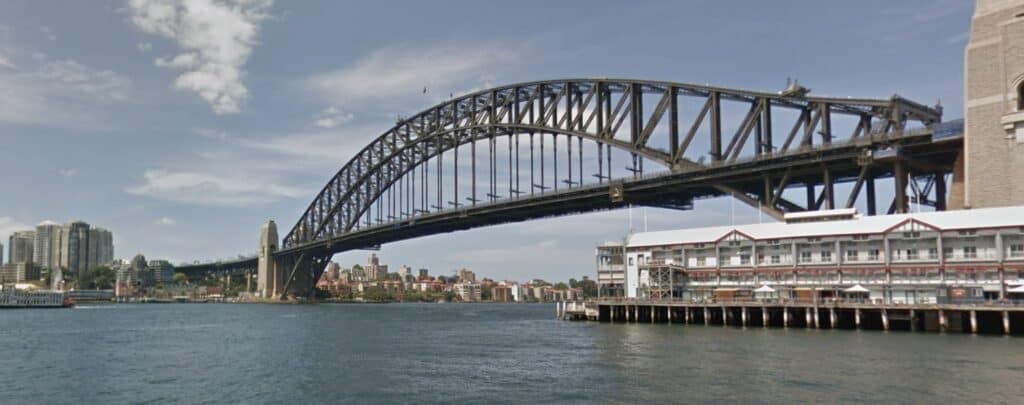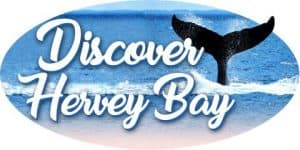Walsh Bay has long been a popular fishing spot in Sydney, New South Wales. Piers 2 and 3 are often filled with local and tourist anglers looking to catch fish amidst the backdrop of the Sydney Harbour Bridge. But are you legally allowed to fish in Walsh Bay?
You can fish in Walsh Bay. Recreational fishing is allowed in Walsh Bay, but the New South Wales government advises against eating the fish you catch. To fish in the area legally, you need to pay the Recreational Fishing Fee and carry your receipt.
In the rest of this article, we’ll take a look at some important things to know before you go fishing in Walsh Bay.

5 Things To Know Before Fishing In Walsh Bay
Walsh Bay is a section of Port Jackson near the Sydney Harbour Bridge. This spot is known for fish like the Yellowtail Amberjack, the Australasian Snapper, and the Surf Bream, among others. This spot has long been known as a safe and accessible fishing spot for families, beginner anglers, and people with disabilities.
It is also known as a place for experienced anglers to try their hand at catching more elusive species like the mulloway or kingfish.
Walsh Bay, like all other parts of Sydney Harbour, falls under the purview of the New South Wales Government’s Department of Primary Industries (DPI).
The department’s website lists everything you need to know about recreational fishing off Walsh Bay’s Piers 2, 3, and 8.
To make it easier for you, I’ve listed the most important things to know below.
1. The New South Wales Recreational Fishing License And Fee
Before you go fishing in Walsh Bay or any other part of Port Jackson, you have to pay the Recreational Fishing Fee by purchasing a Recreational Fishing License. This fee is paid directly to the Department of Primary Industries (DPI). The money is then used to fund the research and development of fisheries in New South Wales.
According to the information on the DPI’s website, the fees for the license are as follows.
- $7 for three days
- $14 for one month
- $35 for one year
- $85 for three years
You can purchase a license for however long you plan to go fishing in the area. If you’re only there for a short vacation, the 3-day or 1-month fees should be enough. Local, regular anglers can opt for the 1-year or 3-year licenses.
There are four ways to purchase the license:
- Through the Online Application Form
available on the New South Wales (NSW) website’s Services Page.
- Calling 1300 369 365 and paying via MasterCard or Visa only.
- Contacting an Accredited Fishing License Agent.
- Paying at an NSW Service Center.
Once you have paid the fee, you can carry your license or the receipt of the payment as proof. The DPI has officers regularly patrolling the area to ensure that no one is fishing illegally. If you don’t have adequate proof of payment, there is a flat $200 on-the-spot fine.
This amount could increase if the officers have reason to suspect you were engaging in illegal fishing activities.
You can check here
2. Size And Bag Limits – Rules And Regulations
The DPI also has regulations regarding the size and bag limits for all kinds of fish available in NSW.
The DPI imposes size limits to allow the fish to mature to their full size. As a result, younger, smaller fish must be released back into the water. These size and bag limits prevent overfishing of any species.
Bag limits refer to the maximum number of specimens that one person can catch in a single day. This is different from Possession Limits, which refer to the total number of fish caught by one person in more than one day.
You can view the regulations on size and bag limits for freshwater fish


3. Eating The Fish You Catch – Rules And Regulations
According to the Department of Primary Industries (DPI), tests conducted
Dioxins are known as Persistent Organic Pollutants

I recommend you heed the following advice given by the DPI:
- Fish caught west of Sydney Harbour should not be consumed. They should be released back into the water.
- Fish caught to the south of Sydney Harbour can be consumed in small quantities. Generally, you should consume only 150 grams of fish or less.
4. The Department Of Primary Industries (DPI) FishSmart App
The DPI has released an app called FishSmart
- Bag and size limits.
- Pictorial guides of recreational species.
- Real-time maps to the nearest recreational fishing zones, artificial reefs, spearfishing zones, nearest Fish Aggregating Devices (FADs), etc.
- Local weather, tide, barometric pressure, and moon tides.
5. Responsible Fishing For Continued Access
The DPI has repeatedly warned against irresponsible fishing and nuisance-causing behaviours
Here are the tips provided by the DPI:
- Use plastic cutting boards instead of balustrades or pylons to clean your fish or prepare the bait.
- Dispose of all litter after you finish.
- Show respect and courtesy to all others on the piers to ensure a smooth, enjoyable experience.
- Keep noise to a minimum near residential areas and avoid shining torches or lights near apartments at night.
Final Thoughts
Fishing in Walsh Bay is allowed as long as you have a Recreational Fishing License or the receipt of payment for the Recreational Fishing Fee. The New South Wales Department of Primary Industries (DPI) has officers who check for this receipt and fine offenders who disobey the rules.
Before you go fishing in Walsh Bay, you should keep in mind the DPI’s rules and regulations for fishing. You can access the full list of rules and regulations on their website.
Resource Links To Products We Use And Recommend
More Pages On Other Areas
There’s been a steady rise in interest in cruise ships worldwide. With everyone wanting to see what all the chatter’s about, many are first-timers. So, if you’re one of those individuals and...
There are always risks where there is money involved, and renting a car is no exception. Even though you are only paying for a car temporarily, you should always be aware of the risks before handing...


